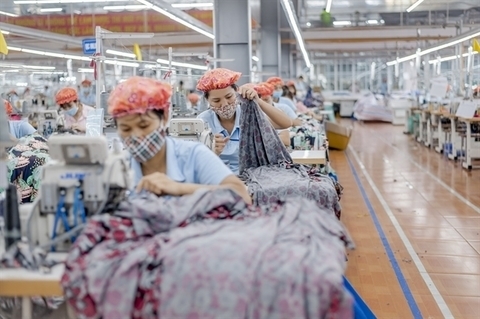Ho Huy, president of Mai Linh Group, which has suspended business in some important markets such as Da Nang and Hoi An, said that if the epidemic continues escalating, businesses with good financial resources will be able to exist for no more than half a year and small businesses for three months.

Mai Linh has reported 30 percent revenue decrease for its entire system, while the figure is up to 50 percent in tourism cities of Da Nang, Nha Trang and Da Lat.
“Businesses escaped death once, but the challenge will be more difficult this time,” he said.
Johnathan Hanh Nguyen, president of IPP and Sasco, thinks the second coronavirus outbreak will have bigger impact on society and economy because of many deaths.
Le Tien Truong, CEO of Vinatex, the largest garment producer, with more than 10,000 employees, said the last months will be challenging.
“It was so difficult to obtain orders to maintain jobs for workers and ensure social security. But when orders came, the second wave rushed down,” Truong said.
| Anticipating difficulties ahead, businesspeople believe that it is not the time to leave the market. |
He said the increased number of workers in quarantine has affected the production process.
As of August 3, more than 200 workers of Hoa Tho Textile and Garment, a subsidiary of Vinatex, had been put into quarantine.
Meanwhile, the company is gearing up to implement orders to observe the delivery schedule.
Economic activities have become stagnant and supply chains have become disrupted.
In such conditions, many businesses, especially small and medium ones, think of ‘hibernating’ or leaving the market.
However, Nguyen Quoc Ky, president of Vietravel, believes that businesses need to try to exist and protect their brands.
“If you leave the market, it will be very difficult to come back,” he warned.
Truong Gia Binh, President of FPT, the Vietnamese largest IT group, also thinks that businesses need to try every possible way to maintain production and sale activities, and arrange jobs for workers.
As for small and mediuem enterprises (SMEs), they should join forces to establish alliances to help each other overcome difficulties.
Stressing that businesses are in a bad state after a period of struggle with the epidemic and they urgently need help from the government, has proposed activating the "wartime" decision-making mechanism, which simplifies procedures and quickly puts economic solutions into practice to save businesses.
Le Ha

Daring proposal: pumping US$2.5-5 billion to save Vietnamese businesses
Some economists have suggested pumping 1-2 percent of GDP, or $2.5-5 billion, into 28 SME credit guarantee funds to help businesses overcome current difficulties.

Vietnam aims to have 2,000 supporting businesses
Prime Minister Nguyen Xuan Phuc has signed a resolution to promote the development of support industries with the aim of having 2,000 enterprises capable of directly supplying parts for multinational corporations in ten years.
